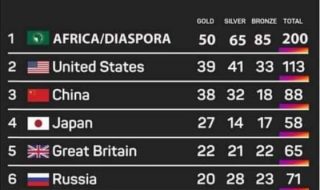
Photo credit: EPL
The current state of the English Premier League can hardly be traced to the troubled years the first division endured before its inception. The disturbing time period took form in the 80’s when scars of violence marked English football.
The rising rates of hooliganism peddled by wild local rivalries and casualties had forced the European Football Governing Body to suspend English teams from European Competitions.
To worsen matters, stadium structures were in poor conditions, clubs were poorly managed to the extent that some were experiencing heavy net losses. Something had to be done about it.
Talks amongst the English Football League (EFL), the Football Association (FA) spearheaded by major clubs at the time including Arsenal, Manchester United and Liverpool for a rejuvenated league proved successful amidst significant reservations from the FA.
So it was that the English Premier League was born, thus, replacing the Football League First Division in 1992 after over a century of its existence.
The league secured lucrative television rights deal engulfing the football enterprise in Europe. The deal took the competition worldwide, wove it with attraction and in the process increasing its viewership and following across the globe.
The success of the TV rights deal largely manifested when it hit a staggering billion pounds in 2013. It was amazing. This was predicted by a good number of economic entities but had been downplayed as the usual hype that English football comes with.
The momentum of the financial rise of the Premier League does not appear to be slowing down anytime soon. From 2016 to the end of the 2017/2018 season, the English First Division recorded an astonishing £8.4bn. This amount, compared to the second best is nothing short of a one-horse race. The German Bundesliga which follows on second spot earned £4.6bn despite an 85% increase.
This cements the wealthy status of the England’s top flight league.
In revenue entirely – the elite list is dominated by teams from England with 13 clubs in the world’s top 30 highest earners.
In fact to according the report released by UEFA, Manchester City (fifth), Arsenal (seventh), Liverpool (eighth) and Chelsea (ninth) make the cut of the top ten earning clubs in Europe.
To put into context, the Premier League clubs amassed revenues of £4.6bn as opposed to the Spanish La Liga’s £2.55bn. The German Bundesliga came third recording an amount of £2.46bn. Italian and French top flight divisions end the top five cut with £1.84bn and £1.4bn respectively.
Apparently on club basis, only Real Madrid, Barcelona and Atletico Madrid earned more than 20th placed West Brom’s £94m. All other 17 Spanish clubs fell behind the least earner in the Premier League. This is mind boggling!
The report confirms the fact that English top flight clubs are making more money despite under performing in Europe.
The Premier League is in its own sphere of competition now as leagues in other countries look to their wealth making story and wonder in awe.
These clubs have a key contributor to thank in their unparalleled success – The English Media. Arguably the best in the world, the media in England are known for their way of making events outstanding. They have not left football out in this regard. The hype they give to the best players in the league can be electrifying even if overrated.
Weekly analysis, team interviews and build up to games are spiced up by journalists ahead of games to invoke strong sentiments among fans and create an avenue for rivalry which would otherwise haven’t been the case.
This has been successful and the league continues to benefit from the work of these media powerhouses including Sky Sports, BBC Sports, BT Sports, among the lots.
The league promises thrilling action every single round as any football expert would tell you. The roller coaster ride it offers in absolutely every season makes it a herculean task to predict the victor unlike other leagues which are one horse races.
Since its inception in 1992, Arsenal, Blackburn, Chelsea, Leicester and both Manchester Clubs have been winners. To narrow it down a bit, there have been four different clubs who have won the league since 2013.
To mention these winners without singling out Leicester would be unfortunate. The story of a club that was in a relegation fight in 2015 but survived to win the league the following year would be that which can never be erased from footballing memory. The odds were entirely against them, yet they prevailed.
The Leicester account informs of how uncertain the league can unfold within the season.
The top spot isn’t the only point of focus in the English Premier League. There are also the top four positions which are now in contention by the six biggest clubs dubbed ‘The Big Six’. Unfortunately, UEFA allows for four teams to compete in its elite competition from England, making the top four positions a narrow passage to meander through.
These dogfights at both ends of the table make it an exciting experience leaving little doubts for the league’s status as the most watched on our entire planet.
This may explain why the clubs under perform in Europe. Perhaps they are getting the status and wealth equivalent to the UEFA clubs probably more so why should they give much more?
While there can be a point to settle for in this argument, the European competitions are very important to the status of the league and the honours it comes with.
As this season unravels, the ride takes full swing and fans cannot help but make unproven predictions on this year’s champion – Either Liverpool or Manchester City (that’s for sure).
In revenue wise, we can only anticipate another record breaking revenue season on the backdrop of yet another thrilling campaign!
GCBM Contributor: Mitchell Amoamah
















